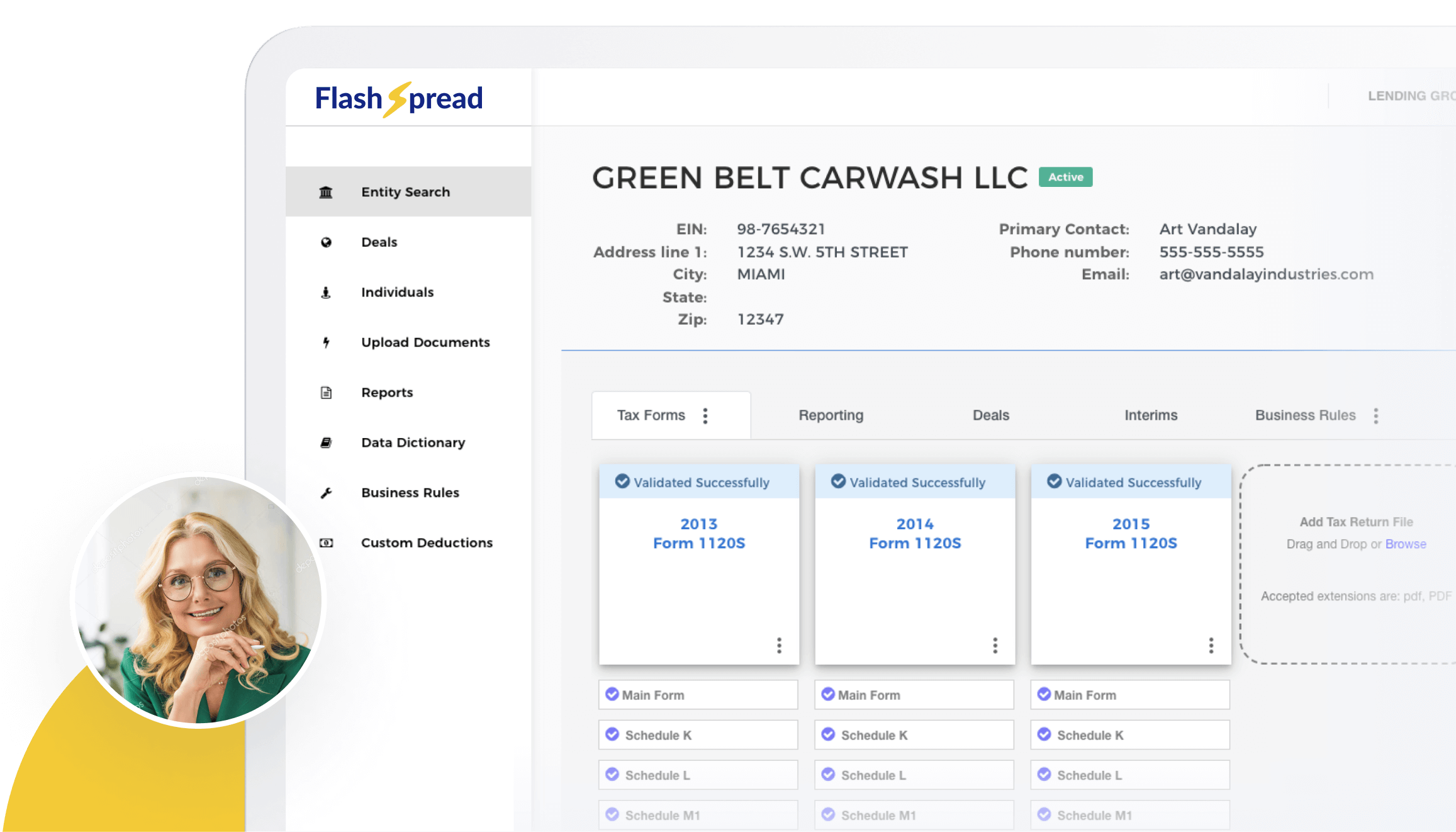Small businesses are the backbone of countless industries and communities, yet they face mounting financial challenges in today’s economy. In fact, according to the Federal Reserve Banks’ Small Business Credit Survey, 59% of small businesses reported being in fair or poor financial condition. For many, securing the right financing could mean the difference between thriving or merely surviving. That’s where Small Business Administration (SBA) loans come into play.
With favorable terms, competitive interest rates, and flexible usage, SBA loans are a lifeline for small businesses looking to overcome financial hurdles. But navigating the competitive application process can be daunting. In this post, we’ll explore SBA loans, their unique advantages, and actionable tips for small businesses to improve their chances of securing this valuable funding.
Table of Contents
What Are SBA Loans?
The Small Business Administration does not directly offer SBA loans. Instead, the SBA partners with approved lenders—like banks and credit unions—to provide loans with a government-backed guarantee. This guarantee reduces the risk for lenders, encouraging them to give loans to small businesses that might not otherwise qualify for conventional financing.
SBA loans are generally known for their favorable terms, such as lower interest rates and extended repayment periods, making them appealing to entrepreneurs.
There are several types of SBA loans available, each designed to address specific business needs:
- 7(a) Loan Program: The most popular SBA loan, ideal for businesses looking for working capital, equipment financing, or real estate acquisition.
- 504 Loan Program: Specifically for businesses seeking to purchase fixed assets like real estate or equipment, 504 loans help promote economic development.
- Microloan Program: Offers smaller loans (up to $50,000) for startups and newer businesses needing working capital or inventory.
- SBA Disaster Loans: These loans can help with repairs and recovery and are available to businesses affected by declared disasters.
Each type of loan has its eligibility criteria, terms, and uses, so it’s essential to understand which loan fits your business needs before applying.
Benefits of SBA Loans for Small Businesses
SBA loans offer distinct advantages over other financing options. Here are some key benefits:
- Lower Interest Rates: One of the most significant benefits of SBA loans is the lower interest rate, usually below what’s offered with conventional loans. The SBA regulates interest rates, keeping them competitive and affordable for small businesses.
- Longer Repayment Terms: Unlike many traditional loans, SBA loans offer extended repayment terms. For instance, the 7(a) loan program allows terms up to 10 years for working capital and 25 years for real estate, giving businesses room to manage their finances.
- Reduced Down Payments: SBA loans often require lower down payments, which helps preserve business cash flow. This is particularly beneficial for startups and small businesses with limited liquidity.
- Flexible Use of Funds: SBA loans can be used for various business purposes, such as purchasing equipment, hiring staff, refinancing debt, or buying real estate. This flexibility enables business owners to use the funds in ways that support their unique growth strategies.
- Access to Capital for Newer Businesses: Traditional lenders often need help to finance startups due to higher risk factors. However, SBA-backed loans can make it easier for young businesses to secure funding, given the SBA’s partial guarantee to lenders.
Challenges of Navigating SBA Loans
Despite the benefits, SBA loans also come with specific challenges. Understanding these obstacles can help business owners prepare and increase their chances of financing
.
Subscribe to BeSmartee 's Digital Mortgage Blog to receive:
- Mortgage Industry Insights
- Security & Compliance Updates
- Q&A's Featuring Mortgage & Technology Experts
- Eligibility Requirements: To qualify for an SBA loan, businesses must meet specific criteria, including size standards, industry type, and credit score minimums. Each loan type has its requirements, so it’s important to carefully review these criteria before applying.
- Lengthy Application Process: SBA loan applications can be more involved than conventional loans, often requiring extensive documentation, such as business plans, financial statements, and tax returns. The process can take several weeks to months from application to disbursement, which may be better for businesses in urgent need of capital.
- Stringent Underwriting Process: Lenders conduct a rigorous underwriting process for SBA loans to assess the financial health and stability of the business. This may involve thoroughly analyzing business finances, cash flow, and credit history. Businesses with more robust financials may need help securing approval.
- Collateral Requirements: Some SBA loans require collateral to back the loan. While the SBA guarantee reduces the risk for lenders, many lenders still ask for collateral as additional security. Businesses with significant assets may need help to meet this requirement.
- Personal Guarantee: Business owners often need a personal guarantee for SBA loans, meaning they are liable if the business defaults. This can put personal assets at risk if the business faces financial challenges.
Navigating the SBA Loan Application Process
Given the competitive landscape of SBA loans, preparing a thorough application is essential. Here are some steps to help small business owners improve their chances of approval:
- Evaluate Eligibility: Before starting the application process, assess your business’s eligibility. Review SBA size standards, credit score requirements, and any specific criteria for your interest in the loan type. Consulting with a financial advisor or lender can clarify whether you meet the necessary qualifications.
- Prepare Financial Documentation: SBA loan applications require extensive financial documentation, including income statements, balance sheets, cash flow statements, and tax returns. Keeping well-organized and up-to-date financial records can streamline the application process.
- Craft a Comprehensive Business Plan: A solid business plan is critical to an SBA loan application. The plan should outline your business goals, market analysis, growth strategies, and financial projections. A well-prepared business plan demonstrates to lenders that you have a clear vision and a pathway to success.
- Improve Your Credit Score: Although the SBA provides a government guarantee, lenders still consider personal and business credit scores when evaluating applications. Improving your credit score before applying can strengthen your application and increase your chances of securing a favorable loan.
- Consider Collateral Options: If the loan requires collateral, determine what assets you can offer, such as real estate, equipment, or inventory. Offering collateral can reassure lenders and make your application more attractive.
- Be Patient and Persistent: The SBA loan process can be time-consuming, so patience and persistence are essential. Following up with your lender, promptly providing additional documentation, and staying engaged throughout the process can help expedite approval.
SBA Loans vs. Alternative Financing Options
While SBA loans offer several benefits, they may be a better fit for some small businesses. Here are some alternative financing options to consider:
- Traditional Bank Loans: Traditional bank loans offer a straightforward financing option for businesses with strong credit and a solid financial history. However, they often come with higher interest rates and shorter terms than SBA loans.
- Online Lenders: Online lenders provide a quicker application process and faster funding than SBA loans. Although interest rates may be higher, online lenders are generally more flexible with eligibility requirements, making them an option for businesses with less-than-perfect credit.
- Business Lines of Credit: A line of credit allows businesses to borrow as needed, only paying interest on the amount drawn. This option is flexible for managing cash flow or covering short-term expenses. Still, it may be suitable for something other than significant capital investments.
- Equipment Financing: Equipment financing is designed specifically for purchasing equipment. The equipment itself often serves as collateral, and the repayment terms typically align with the useful life of the equipment.
Understanding these options can help you make an informed decision based on your business needs, financial health, and goals.
Roundup
Navigating the SBA loan process can be challenging, but having access to the right solutions can simplify your journey to success. FlashSpread offers an innovative solution that automates the spreading and analysis of financial statements, allowing lenders to review financials quickly and efficiently.
By streamlining this process, FlashSpread helps small business owners present their financial information accurately and transparently, improving their chances of loan approval.
If you’re a small business owner or lender looking to succeed in the competitive world of SBA loans, consider partnering with FlashSpread.
Ready to take the next step? Contact us today to learn how our software can streamline your SBA loan application process and set you on the path to financial success.




